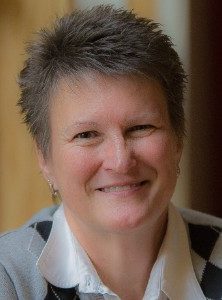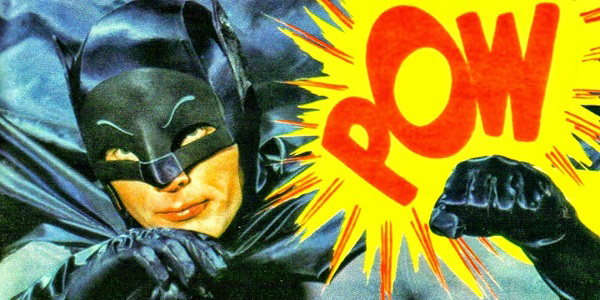In Naomi Alderman’s 2016 novel, The Power, a force awakens in girls and women that lets them send electrical shocks out from their hands. They begin to use this power to fight back against men and to become dominant. Under the leadership of a powerful religious leader named Eve, they eventually employ The Power to bring about a cataclysmic event that sends the world back to the stone age to start over with the belief that women always have been dominant.
Some days, I would like to have The Power. These are, admittedly, not my best days and, although in reality I am a practitioner of nonviolence, I take some comfort in imagining zapping gun manufacturers, Supreme Court justices, antivaxxers and every abuser and enabler in the Southern Baptist Convention.

Susan Shaw
Some of you may be too young to remember the early Batman TV shows. But when Batman and Robin fought the villains, with each blow, a cartoon “Bam” or “Pow” appeared on the screen. I imagine myself some version of a 60-something feminist caped crusader, a salt-and-pepper-haired Tank Girl in comfortable Adidas on a mission to rid the world of misogyny. “Bam!” “Pow! “Zap!”
“Zap!” There go the cowardly senators who won’t pass sensible gun legislation.
“Zap!” There go the polluters who put profit above clean air and water.
“Zap!” There go governors who sign legislation giving zygotes more rights than girls and women.
“Zap!” There goes every man who ever has harmed a woman and every person who ever has harmed a child.
“Zap!” There goes the SBC Executive Committee, Paige Patterson, Paul Pressler and the whole lot of them who forced themselves on the Southern Baptist Convention, all the while abusing women, children and young people, demanding women’s subordination, denying and covering up the abuse, and gaslighting Southern Baptist people in the pews.
“Zap!” “Zap!” “Zap!”
Now, before you chide me for not being Christlike, let’s remember that Jesus once lost it in the temple and trashed the place and drove the moneychangers out with a whip. “Zap!”
“What frightens them is the belief that, if women ever really had power over men, they’d use it like men have used their power over women.”
Feminists never have wanted a world where women exercise power over men. That’s just a stereotype used to frighten men away from feminism, and I think what frightens them is the belief that, if women ever really had power over men, they’d use it like men have used their power over women.
Despite my “zapping” fantasies, I don’t want a world where power is a matter of control and violence. Feminist Marilyn French offered an alternative to this conception of power as domination and oppression. Instead of thinking of power as “power over,” she advocated for understanding power as a matter of “power to.”
“Power to” is about agency, about capacity and ability. French writes, “There’s power to: and everyone should have that, but everyone doesn’t. Power to play Bach, or tennis, or boccie if you like. And there’s power over; and no one should have that, but people do.”
Feminist Mary Parker Follett suggested we think of power as “power with,” our collective ability borne out of relationship and reciprocity. Both these constructions of power envision power as a mutually shared enterprise that creates an affirming and life-giving rather than destructive world.
 Satisfying as the idea of “zapping” is, it only reproduces the patriarchal dynamics of power we see devastating the world around us. Audre Lorde had it right: “The master’s tools will never dismantle the master’s house,” and so power over never will dismantle oppressive structures of power.
Satisfying as the idea of “zapping” is, it only reproduces the patriarchal dynamics of power we see devastating the world around us. Audre Lorde had it right: “The master’s tools will never dismantle the master’s house,” and so power over never will dismantle oppressive structures of power.
When the devil came to Jesus in the desert to tempt him, the temptation was about what kind of Messiah Jesus was going to be. The devil offered him the chance to be the kind of Messiah who ruled an earthly kingdom and destroyed his enemies. Jesus said, “No.”
Other than his little hissy fit in the temple (and, seriously, we can all surely understand why even Jesus himself would melt down now and again faced with this nonsense day after day), Jesus is clear in his rejection of power over. God’s community never will come by the sword; it will come by the power of love (Huey Lewis got that right).
Most days, this is good news. Some days I still prefer the idea of “zapping.” But I’m working on that.
Susan M. Shaw is professor of women, gender and sexuality studies at Oregon State University in Corvallis, Ore. She also is an ordained Baptist minister and holds master’s and doctoral degrees from Southern Baptist Theological Seminary. Her most recent book is Intersectional Theology: An Introductory Guide, co-authored with Grace Ji-Sun Kim.
Related articles:
The power of political capital to shape communities and churches | Analysis by Brian Foreman and Justin Nelson
Your words hold the power of life and death | Opinion by Amber Cantorna
Carl Lentz and the pitfalls of male power | Opinion by Tiffany Bluhm

